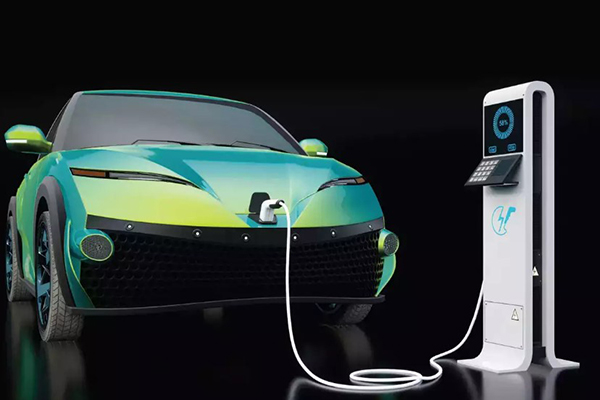Standing as one of the main pillars of support to growing India’s economy, the automotive industry in India is a key driver of growth. With the liberalization of India along with conscious policy interventions of the government, the automobile market has created a vibrant and competitive market in the last few years.
Currently, India’s automotive market shares 7.1 percent of India are GDP and employ a workforce of around 37 million. When talking about the total car sales in 2022, it dipped by 3% relative to 2021. On the other hand, the pace of EV adoption has grown rapidly with consumers and businesses recognising the economic gains of zero-emission transport. Electric car sales which include battery electric vehicles (BEVs) and plug-in hybrid electric vehicles (PHEVs) exceeded 10 million last year, up 55% relative to 2021. This figure logged 10 million EV sales worldwide exceeding the total number of cars sold across the entire European Union (about 9.5 million vehicles) and is nearly half of the total number of cars sold in China in 2022. In the course of just five years, from 2017 to 2022, EV sales jumped from around 1 million to more than 10 million. It previously took five years from 2012 to 2017 for EV sales to grow from 100 000 to 1 million, underscoring the exponential nature of EV sales growth. The share of electric cars in total car sales jumped from 9% in 2021 to 14% in 2022, more than 10 times their share in 2017 states an IEA org report. Alone in 2021 the total production of Passenger Vehicles, Commercial Vehicles, Three Wheelers, Two Wheelers and Quadricycle in January-December 2021 was around 2,40,67,787 units, according to SIAM (Society of Indian Automobile Manufacturers) report of 2021. China accounted for nearly 60% of all new electric car registrations globally. For the first time in 2022, China accounted for more than 50% of all the electric cars on the world’s roads, a total of 13.8 million. This strong growth results from more than a decade of sustained policy support for early adopters, including an extension of purchase incentives initially planned for phase-out in 2020 to the end of 2022 due to Covid-19, in addition to non-financial support such as rapid roll-out of charging infrastructure and stringent registration policies for non-electric cars. To add more statistics, the Union Minister of State for Heavy Industries, Shri Krishan Pal Gurjar said that 2,56,980 electric vehicles registered in India in 2023 (till 15.03.2023)

Electric Cars – Accelerating Through Driver’s Seat
Early indications from first quarter sales of 2023 point to an upbeat market, supported by cost declines as well as strengthened policy support in key markets such as the United States. Globally, IEA org current estimate is therefore for nearly 14 million electric cars to be sold in 2023, building on the more than 2.3 million already sold in the first quarter of the year. This represents a 35% increase in electric car sales in 2023 compared to 2022 and would bring the global electric sales share to around 18%, up from 14% in 2022.
Electric car sales in the first three months of 2023 have shown strong signs of growth compared to the same period in 2022. In the United States, more than 320 000 electric cars were sold in the first quarter of 2023, 60% more than over the same period in 2022. Our current expectation is for this growth to be sustained throughout the year, with electric car sales reaching over 1.5 million in 2023, bringing the electric car sales share in the United States up to around 12% in 2023. As revealed by FADA (Federation of Automobile Dealers Association), Electric car sales witnessed 2.5% penetration in the automotive industry in May 2023.
Electric vehicle (EV) retail sales in April 2023 is slated to have risen by 41% year on year to 109,283 units (April 2022: 77,493 units) – data, sourced from Vahan (as of 8.30 pm, April 30, 2023) makes April the seventh month in a row that overall EV sales in India have crossed the 100,000-unit mark. While April 2023 retails are better than those in January 2023 (102,709 units) and February 2023 (107,039 units), they are down 28% on March 2023’s 140,541 units. As is known, FY2023 saw the domestic EV industry clock over 11,81,734 retail sales, up 155% on FY2022 (4,58,757 units), and cross the million milestone for the first time, accounting for 30.37% of total India Auto Inc sales of over 3.89 million units.

Two- And Three-Wheeler Sales Power Growth
Delving into near-decadal data of EVs retails reveals that a total of 1.25 million electric two-wheelers have been sold in the past nine-and-a-half years, accounting for 49.46% of total EV sales between CY2014 and end-May 2023. The next-biggest contributor is the other ‘low-hanging fruit’ – e-three-wheelers with 1.17 million units and a 46.23% share. A close look at the comparative sales tables of the four EV sub-segment shows that between 2014 and 2020, sales of e-three-wheelers (469,731 units) outstripped e-two-wheelers (82,635 units) massively. CY2021 seemed to be a leveller with three-wheelers (158,091 units) just 1,903 units ahead of e-scooters and bikes. However, since 2022, the charge of the e-two-wheeler brigade has left its three-wheeler siblings behind.
Compared to the more affordable two- and three-wheelers, sales of more expensive electric passenger vehicles were understandably much fewer. As per Vahan data, since FY2014, a total of 92,758 electric cars, SUVs and MPVs have been sold till end-May 2023 – that’s 3.65% of cumulative EV sales in India The remaining less-than-1% share of the 100% EV pie is carved between electric buses and cargo carriers (light, medium and heavy).

Key Trends and Initiatives Shaping EV industry in India
According to an independent study by CEEW Centre for Energy Finance (CEEW-CEF), the EV market in India will be a US$206 billion opportunity by 2030 if India maintains steady progress to meet its ambitious 2030 target. This would require a cumulative investment of over US$180 billion in vehicle production and charging infrastructure. In 2021, the Indian EV industry attracted US$6 billion in investment and is becoming steadily more attractive to private equity/venture capital investors.
Another report by India Energy Storage Alliance (IESA) projects that the Indian EV market will grow at a CAGR of 36 percent till 2026. The EV battery market is also projected to grow at a CAGR of 30 percent during the same period. Meanwhile, India’s EV market is estimated to grow at 49 percent CAGR in the 2022-2030 period in a business as usual scenario as per the IESA report. Overall, by 2030, the EV industry is set to create 10 million direct jobs and 50 million indirect jobs (IVCA-EY-Induslaw report). India is also witnessing the rise of a sizeable EV financing market, with Niti Aayog projecting it to be worth US$50 billion by 2030. The federal government is also prioritizing the shift towards clean mobility, and recent moves to amend the Faster Adoption and Manufacturing of Hybrid and Electric Vehicles in India (FAME) II scheme to make electric two-wheelers more affordable, is a case in point. Under the phase two of the FAME scheme, as on July 11, 2022, about 469,315 electric vehicles were supported through demand incentives amounting to about INR 18.69 billion. Approvals have been granted to 6,315 electrical buses and 2,877 EV charging stations sanctioned in 68 cities across 25 states/Union Territories. 50 original equipment manufacturers (OEMs), both start-ups and established manufacturers, have registered and revalidated their 106 EV models. There are 1,576 charging stations sanctioned for set-up across nine expressways and 16 highways.
In addition, multiple production-linked incentive schemes intend to create a local manufacturing ecosystem to support goals around greater adoption of electric mobility transport. This is sought to be achieved by incentivizing fresh investments into developing indigenous supply chains for key technologies, products, and auto components.
The recent permits given by the government for the installation of private charging stations are anticipated to be implemented in the upcoming year. Creating robust charging infrastructure has been one of the top priorities for the government due to raising climatic concerns. There have been several initiatives taken by them to help an EV owner easily approach the local or state nodal agency for the installation of charging stations. In addition, the directive to permit the installation of EV charging points at public places will increase EV penetration in 2023. The recent permits given by the government for the installation of private charging stations are anticipated to be implemented in the upcoming year. Creating robust charging infrastructure has been one of the top priorities for the government due to raising climatic concerns. There have been several initiatives taken by them to help an EV owner easily approach the local or state nodal agency for the installation of charging stations. In addition, the directive to permit the installation of EV charging points at public places will increase EV penetration in 2023.
India’s EV ambitions are gaining strong momentum. However, it still lacks EV financing options in rural and semi-urban areas. With the emergence of disruptive EV and fintech startups, the year 2023 is predicted to witness a huge shift in providing digital lending solutions to EV users. The EV market is anticipated to welcome a new trend of green financing that will help rural and semi-urban populace to adopt green technology with easy lending solutions.

















